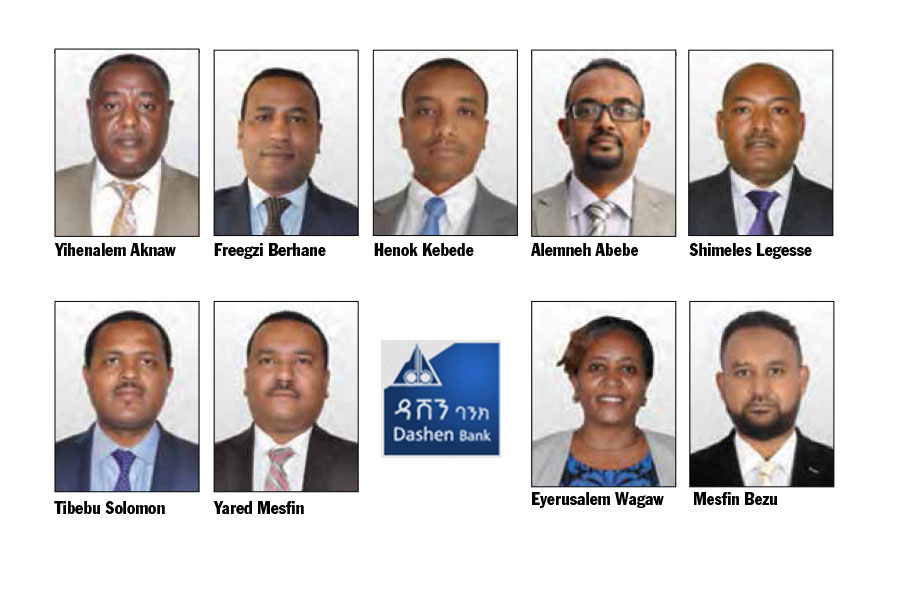
Commentaries | Aug 16,2020
Apr 20 , 2024
By José Antonio Ocamp
Since the onset of the COVID-19 pandemic, the developing world has faced growing public-sector debt vulnerabilities. Interest-rate hikes and limited access to international capital markets have only exacerbated the problem – so much so that even solvent countries are now wrestling with liquidity challenges. The International Monetary Fund (IMF) predicts that, in the coming years, developing countries' debt levels will remain higher than in 2019.
It seems clear that many low- and middle-income countries will continue to experience debt stress, even if they are not at risk of default.
Yet the severity of the crisis is not reflected in the agenda for global cooperation. Last year's G20 Summit in New Delhi, for example, advanced important proposals for development finance but made little progress in addressing the over-indebtedness of low- and middle-income countries. Most crucially, the world still lacks a comprehensive debt-restructuring mechanism to deal with this widespread and recurrent problem.
The oldest existing debt-restructuring mechanism, the Paris Club, covers only sovereign debt owed to its 22 members – mainly OECD countries. Occasionally, multilateral lenders and foreign governments have adopted ad hoc responses to sovereign debt crises. For example, the United States-backed Bradly Plan, implemented after the Latin American crisis of the 1980s, helped reduce some countries' debts and catalysed the development of a sovereign bond market for developing countries. In 1996, the IMF and the World Bank launched the Heavily Indebted Poor Countries Initiative (HIPIC) to provide a much-needed reprieve for low-income countries; this was supplemented in 2005 with the Multilateral Debt Relief Initiative, which cancelled eligible countries' debts to multilateral creditors.
Other reactive measures have aimed to improve the restructuring process.
Following the Mexican crisis of 1994, the OECD's G10 proposed introducing collective action clauses (CACs) in bond contracts, enabling a qualified majority of bondholders to modify the terms and conditions if necessary. In 2013, after the Greek debt crisis, the European Union (EU) mandated the inclusion of aggregation clauses for CACs in its members' bond contracts, facilitating joint renegotiation of several issues. But despite these reforms, creditors can still build blocking majorities, owing partly to the lack of expanded CACs in roughly half of sovereign bonds issued by emerging and developing countries, and partly to the incompatibility between bond agreements and other debt contracts.
The IMF attempted but failed to create an institutional framework for sivering-debt-restructuring in 2001-03. The proposed mechanism would have allowed unsustainable external debts to be restructured through a rapid, orderly, and predictable process while protecting creditors' rights. The overseeing body would have been independent of the IMF's Executive Board and Board of Governors. Ultimately, the US rejected the initiative, as did some developing countries (notably Brazil and Mexico), fearing that the mechanism would restrict their access to capital markets.
During the pandemic, when public debt levels soared, the G20 and the Paris Club created the Debt Service Suspension Initiative (DSSI) for low-income countries, which stopped debt payments for 48 of 73 eligible countries from May 2020 to December 2021. Then, at the end of 2020, they endorsed the Common Framework for Debt Treatment to coordinate and provide debt relief to DSSI-eligible countries. But, so far, only three countries – Ghana, Zambia and Chad – have reached an agreement under the framework, while only one other – Ethiopia – has applied.
Fears of credit-ratings downgrades have reportedly deterred several other potential beneficiaries from participating.
There is a need for a permanent solution: an institutional mechanism for sovereign debt restructuring, preferably under the aegis of the United Nations. The IMF could also house such a mechanism, but only if the dispute-settlement body remains independent of the Fund's Executive Board and Board of Governors, as proposed in 2003. The renegotiation framework should call for a three-stage process of voluntary renegotiation, mediation, and arbitration, each with a fixed deadline.
However, even if agreed upon, a statutory mechanism would require long and complex negotiations. Thus, an ad hoc instrument is an essential complement. The UN and other entities have proposed a revised Common Framework, which should set a clear and shorter time frame for restructuring, suspend debt payments during negotiations, establish clear procedures and rules, guarantee the participation of private creditors, and expand eligibility to middle-income countries. To ensure post-restructuring stability, any agreement should include revised maturities and interest rates and debt reduction if necessary.
An alternative could be a mechanism supported by the IMF, the World Bank, or regional multilateral development banks (MDBs). In addition to providing the renegotiation framework, the presiding institution could facilitate financing, address the macroeconomic imbalances of the countries involved, and support the restructuring process. If new bonds are issued, they should have a guarantee attached, similar to the Brady bonds.
There is also the question of whether debts owed to MDBs and the IMF should be included in the restructuring processes, as was done for low-income countries in 2005. Given that these institutions are responsible for a significant share of the debt owed by highly indebted low-income countries, especially in Sub-Saharan Africa, it may be necessary to include them. If so, it would be essential to ensure a steady flow of development aid to cover their losses.
The traditional separation between official and private creditors has been complicated by new official lenders, notably China, and the rise of various debt contracts, including guarantees to private investors, separate from bonds. Future "aggregations" must encompass all obligations. Therefore, establishing a global debt registry covering all liabilities with private and official creditors is required to ensure equitable creditor treatment and enhance transparency.
Lastly, to mitigate future debt crises, the World Bank and others have suggested the widespread adoption of state-contingent bonds that adjust returns based on economic conditions or commodity prices. This would alleviate pressure on sovereign balance sheets during downturns. Over-indebted developing countries will never get the relief they need if the international community does not centre the issue on its agenda. Debt restructuring should be a top policy priority at this year's G20 summit in Rio de Janeiro and the Fourth International Conference on Financing for Developing, which will be held in Spain in 2025.
PUBLISHED ON
Apr 20,2024 [ VOL
25 , NO
1251]


Editorial | Jul 17,2022

Fortune News | Jan 19,2019

Sunday with Eden | Jul 27,2024

Obituary | Dec 05,2020

Photo Gallery | 172033 Views | May 06,2019

Photo Gallery | 162269 Views | Apr 26,2019

Photo Gallery | 152046 Views | Oct 06,2021

My Opinion | 136342 Views | Aug 14,2021





Dec 22 , 2024 . By TIZITA SHEWAFERAW
Charged with transforming colossal state-owned enterprises into modern and competitiv...

Aug 18 , 2024 . By AKSAH ITALO
Although predictable Yonas Zerihun's job in the ride-hailing service is not immune to...

Jul 28 , 2024 . By TIZITA SHEWAFERAW
Unhabitual, perhaps too many, Samuel Gebreyohannes, 38, used to occasionally enjoy a couple of beers at breakfast. However, he recently swit...

Jul 13 , 2024 . By AKSAH ITALO
Investors who rely on tractors, trucks, and field vehicles for commuting, transporting commodities, and f...

Oct 4 , 2025
Eyob Tekalegn (PhD) had been in the Governor's chair for only weeks when, on Septembe...

Sep 27 , 2025
Four years into an experiment with “shock therapy” in education, the national moo...

Sep 20 , 2025
Getachew Reda's return to the national stage was always going to stir attention. Once...

Sep 13 , 2025
At its launch in Nairobi two years ago, the Africa Climate Summit was billed as the f...

Oct 5 , 2025 . By NAHOM AYELE
In Meqelle, a name long associated with industrial grit and regional pride is undergo...

Oct 5 , 2025 . By BEZAWIT HULUAGER
The federal government is set to roll out a new "motor vehicle circulation tax" in th...

Oct 5 , 2025 . By NAHOM AYELE
The Bank of Abyssinia is wrestling with the loss of a prime plot of land once leased...

Oct 5 , 2025 . By BEZAWIT HULUAGER
The Customs Commission has introduced new tariffs on a wide range of imported goods i...